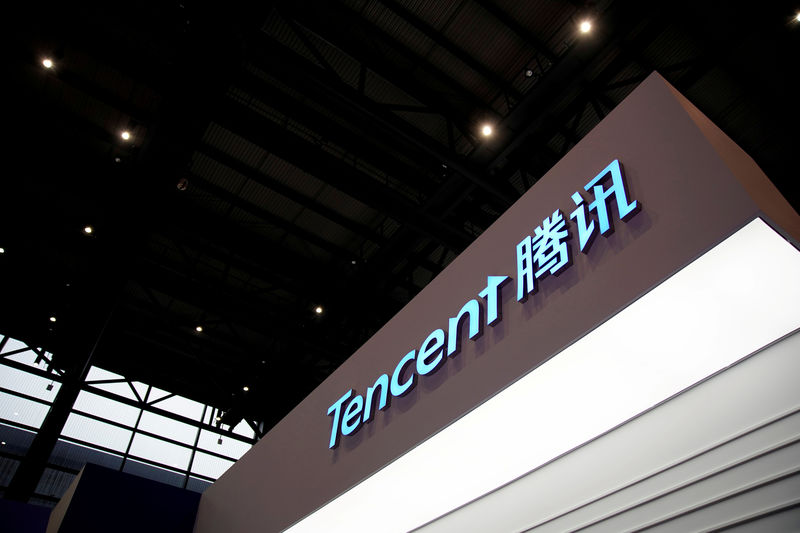China’s Xi speaks with Trump by phone, discusses Taiwan and bilateral ties
By Ambar Warrick
Investing.com -- Major Chinese technology stocks rose on Thursday, with shares of Tencent up sharply after the internet giant logged stronger-than-expected annual earnings, while less hawkish signals from the Federal Reserve also aided sentiment.
Tencent Holdings Ltd (HK:0700) rose over 6% to HK$368.40 a share, and was set for its best day since early-March, as easing COVID lockdowns in China and a less strict regulatory environment helped profit fall less than feared in 2022.
The world’s largest videogame maker logged a net profit attributable to shareholders of 188.24 billion yuan ($1 = 6.8225 yuan) in 2022, down 16% from last year, but more than Refinitiv estimates of 114.19B yuan.
The WeChat operator logged its first-ever revenue decline for the year, down 1% to 554.55B yuan. Tencent’s operations were hit hard by a string of COVID lockdowns throughout the year.
Increased regulatory scrutiny from Beijing also weighed on the firm, as it was slapped with several antitrust fines and investigations.
But with China now scaling back its strict zero-COVID policy, Tencent's advertising business is seen primed for growth. Beijing also softened its rhetoric against China’s technology giants in recent months, as the government moves to shore up economic growth after three years of COVID lockdowns.
This is expected to benefit Tencent this year, with the company also promising more cost-cutting measures and a greater focus on its core business.
Strength in Tencent spilled over into other major internet firms. E-commerce giant Alibaba Group Holding Ltd (HK:9988) added 3.2% in Hong Kong trade, while JD.com (HK:9618) and Baidu Inc (HK:9888) rose 1.8% and 0.7%, respectively.
Gains in technology stocks also helped the Hang Seng index rally 1.6%, far more than its Asian peers.
Sentiment towards technology stocks was somewhat aided by hints from the Federal Reserve that it could potentially pause its current rate hike cycle.
Still, tech stocks were nursing large losses over the past year, as rising yields and interest rates battered the appeal of growth stocks.
